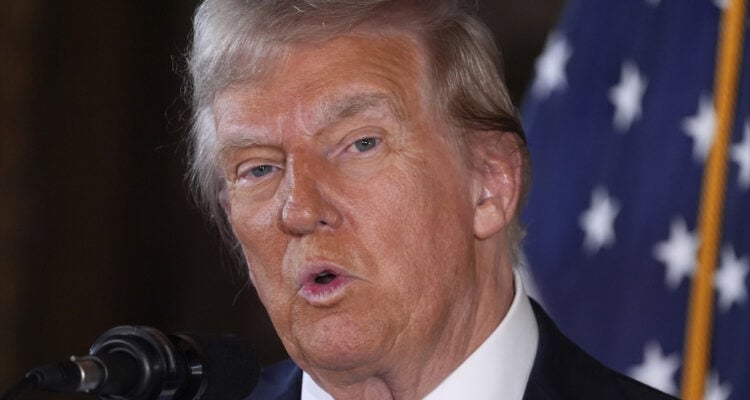More than half of right-wing Israelis believe such a scenario is unlikely, though approximately one-third consider it a real possibility.
By TPS
A significant number of Israelis fear that there is a high possibility of US President Donald Trump abandoning Israel if Jerusalem’s policies don’t align with US interests, according to a survey released on Monday.
The survey, commissioned by The Israeli Democracy Institute, comes on the heels of a heated exchange between Trump and Ukrainian President Volodymyr Zelensky on Friday.
The Jerusalem-based research center Israel Democracy Institute asked Israelis what the likelihood is that President Trump would turn his back on Israel if he perceives its policies aren’t in line with Washington.
Approximately half of the Israeli public believes such a scenario is either quite unlikely or very unlikely, the survey found. However, a significant portion — around 40% — worries that the possibility of Trump and Israel having a falling out is either quite high or very high.
“President Trump is unpredictable,” Prof. Eyal Zisser, Chair of The Department for Middle Eastern and African History of the Tel Aviv University, told The Press Service of Israel.
“Israel is slightly different from Ukraine, because we have the support of the Republican Party and because Israel is the strategic ally of the US. But if Israel irritates Trump, he can as well turn his back to us as he did to Ukraine.”
The survey revealed notable differences across demographic groups. Among Jewish Israelis, 41% believe there is a high chance of an American pivot away from Israel, compared to 30% among Arab Israelis.
Political affiliation shows even starker contrasts. More than half of left-wing Israelis believe there’s a high or very high chance Trump would withdraw support, while only about one-third think this is unlikely.
Conversely, more than half of right-wing Israelis believe such a scenario is unlikely, though approximately one-third consider it a real possibility. Centrists remain divided on the issue.
The February 2025 Israeli Voice Index, conducted by the Viterbi Center at the Israel Democracy Institute, surveyed 759 Israeli adults online and by phone from February 25-28, before Zelensky’s Oval Office meeting. The results had a margin of error of 3.5%.
Zelensky was expected to sign a minerals agreement with the US. Instead, in front of live cameras, Trump and Vice President J.D. Vance argued with Zelensky over Russia’s commitment to resolving the war through diplomacy.





